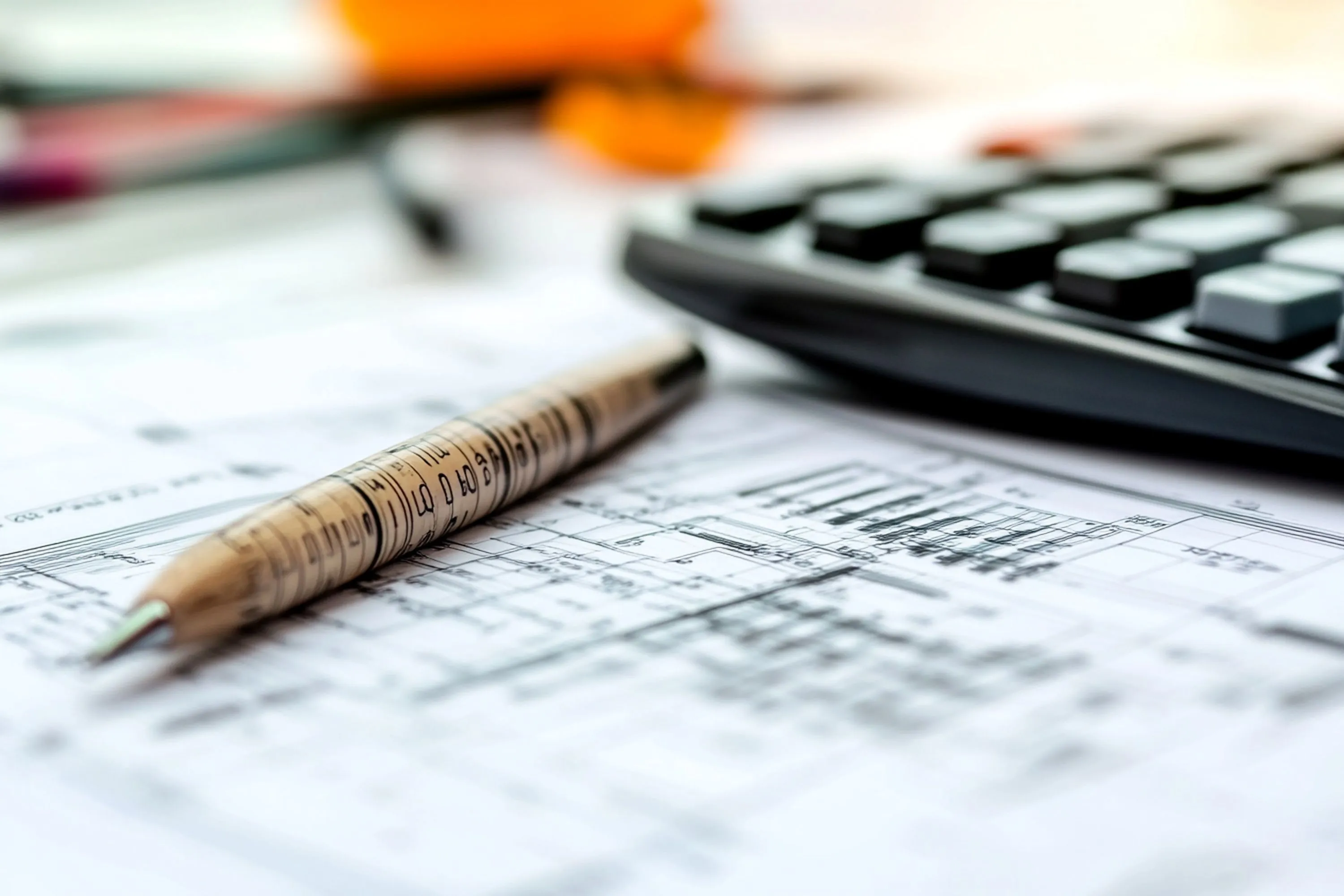Understanding Property Taxes in Germany

Author
Ajay DhingraGermany’s tax system for property ownership is straightforward, but understanding property taxes is essential for both first-time homebuyers and seasoned investors. This article will guide you through the various property taxes in Germany, how they are calculated, and how property owners can reduce their tax liabilities.
Table of Contents:
- Overview of Property Taxes in Germany
- Types of Property Taxes in Germany
- How Property Taxes Are Calculated
- Tax Benefits for Property Owners in Germany
- How to Reduce Your Property Tax Liabilities
- Understanding Tax Deductions for Homeowners
- Frequently Asked Questions (FAQs)
1. Overview of Property Taxes in Germany
Germany’s tax system for property owners is relatively straightforward, but it’s crucial to understand each component to effectively plan your finances. Whether you're an expat or a local, there are taxes associated with both the ownership and transfer of property. The taxes in Germany are designed to ensure that property owners contribute to the local economy while encouraging long-term investment and sustainable housing.
Expats, in particular, may be unfamiliar with the various taxes, and it's important to understand how the system works to avoid surprises and ensure compliance with German law. However, once you become familiar with Germany’s tax laws, you’ll find the system to be transparent and relatively straightforward. Property taxes are based on factors such as the type of property you own, its location, and its value. In general, property taxes in Germany are fairly low compared to other European countries, which makes it an attractive place for real estate investment.
In addition to taxes, Germany also offers some tax benefits for property owners, such as deductions for mortgage interest and depreciation. Understanding these benefits can help you reduce your tax liabilities and increase the profitability of your investment. With the right knowledge, expats can navigate Germany's property tax system with confidence and maximize the benefits of investing in the country's real estate market.
2. Types of Property Taxes in Germany
2.1 Real Property Tax (Grundsteuer)
The Grundsteuer is the primary property tax in Germany. This tax is levied annually by local municipalities, and the amount you pay is based on the value of your property. There are two different tax rates applied to properties:
- For residential properties, the tax is calculated based on the Einheitswert (standard value), which is determined by the tax authorities.
- For commercial properties, the calculation is slightly different, with tax rates varying depending on the location and size of the property.
The Grundsteuer is an essential source of income for local governments and can vary from city to city. In cities like Munich or Berlin, where property values are higher, the tax may be relatively substantial.
2.2 Property Transfer Tax (Grunderwerbsteuer)
The Grunderwerbsteuer is a one-time tax paid when a property is purchased. This tax is calculated based on the purchase price of the property. The rates for this tax vary across Germany:
- Rates: The Grunderwerbsteuer rate ranges between 3.5% and 6.5%, depending on the state where the property is located.
- Payment: This tax is paid by the buyer at the time of the property transfer, and it is typically added to the overall closing costs.
For expats purchasing property in Germany, the Grunderwerbsteuer can be a significant upfront cost to consider. It is important to factor this into your overall budget when planning your property purchase. Unlike other taxes, the Grunderwerbsteuer is a one-time payment, but it must be paid before the property transfer is completed.
2.3 Capital Gains Tax (Kapitalertragssteuer)
Capital gains tax, known as Kapitalertragssteuer, is levied when a property is sold for a profit. However, there are some important exemptions:
- If you have owned the property for more than 10 years, you can typically sell it without being subject to capital gains tax. This rule encourages long-term ownership and provides tax benefits for property investors who hold their properties for extended periods. For properties held for less than 10 years, the capital gain is taxed at a flat rate of 26.375%, which includes the solidarity surcharge.
- If the property was used as your primary residence for at least two years before selling, it may also be exempt from this tax.
For investors and expats, it is crucial to plan your property sale around these regulations to minimize tax liabilities.
3. How Property Taxes Are Calculated
Calculating property taxes in Germany depends on the type of tax being assessed. Below is a breakdown of how these taxes are determined:
- Real Property Tax (Grundsteuer): This is based on the Einheitswert (standard value) of the property, which is assessed by the tax authorities. This value may differ from the current market value.
- Property Transfer Tax (Grunderwerbsteuer): This tax is a percentage of the purchase price of the property. The rate varies by state and can be anywhere between 3.5% and 6.5%.
- Capital Gains Tax (Kapitalertragssteuer): This tax is calculated based on the sale price of the property minus the purchase price and any expenses incurred during ownership (such as renovation costs).
4. Tax Benefits for Property Owners in Germany
Owning property in Germany can provide a variety of tax benefits, particularly for those who rent out their property or make energy-efficient upgrades. Below are some key benefits:
- Deductible Expenses: Property owners can deduct certain expenses, such as maintenance costs, repair costs, and property management fees, from their taxable income.
- Depreciation: If the property is used for rental purposes, owners can also claim depreciation on the property, reducing their taxable income.
- Tax Deductions for Energy Efficiency: Germany offers tax deductions for property owners who make energy-efficient improvements to their properties.
5. How to Reduce Your Property Tax Liabilities
While property taxes are mandatory in Germany, there are several strategies you can employ to reduce your liabilities:
- Invest in Energy Efficiency: Upgrading your property with energy-efficient features like insulation, energy-saving windows, and solar panels can lead to both tax savings and lower utility costs.
- Claim Deductions: Ensure you are taking full advantage of deductions for expenses related to property maintenance, management, and repairs.
- Consult a Tax Advisor: A tax advisor can help you navigate the complex world of property taxes in Germany and ensure you are complying with all the necessary regulations while minimizing your tax burden.
6. Understanding Tax Deductions for Homeowners
Homeowners in Germany can take advantage of various tax deductions, including:
- Maintenance and Repair Costs: These can be deducted from your taxable income if you rent out the property.
- Interest on Loans: The interest paid on property loans can also be deducted if the property is used for business purposes or rental income.
It is vital to keep detailed records of all expenditures related to property management, as these can be used to reduce taxable income.

7. Frequently Asked Questions (FAQs)
1. What is the property transfer tax (Grunderwerbsteuer) in Germany?
The Grunderwerbsteuer is a tax that buyers must pay when purchasing property in Germany. The rate ranges between 3.5% and 6.5%, depending on the state.
2. How can I reduce my property tax liabilities in Germany?
You can reduce your liabilities by investing in energy-efficient upgrades, claiming tax deductions for property maintenance and management, and consulting with a tax advisor to optimize your tax strategy.
3. Do I have to pay capital gains tax when selling property in Germany?
You may have to pay capital gains tax if you sell the property for a profit. However, if you have owned the property for more than 10 years or it has been your primary residence for at least two years, you may be exempt from this tax.
4. How is the real property tax (Grundsteuer) calculated?
The Grundsteuer is based on the Einheitswert (standard value) of the property, which is assessed by the tax authorities. This value may differ from the current market value.
5. What are the main tax benefits of owning property in Germany?
Some benefits include deductions for maintenance costs, depreciation on rental properties, and tax savings for energy-efficient upgrades.
Conclusion:
Understanding property taxes in Germany is crucial for anyone looking to invest in real estate, whether as an expat or a local. From the Grunderwerbsteuer to the Grundsteuer, knowing the ins and outs of these taxes can help you manage your investment more effectively and avoid unnecessary costs. Be sure to take advantage of available tax benefits, such as deductions for maintenance and energy-efficient improvements. And most importantly, consider consulting a tax advisor to ensure you're fully compliant while minimizing your tax liability.
For further guidance on your property investment journey in Germany, be sure to use our Property Investment Calculator and explore available properties through our Real Estate Search Engine. For more personalized advice, don’t hesitate to Contact Us.



